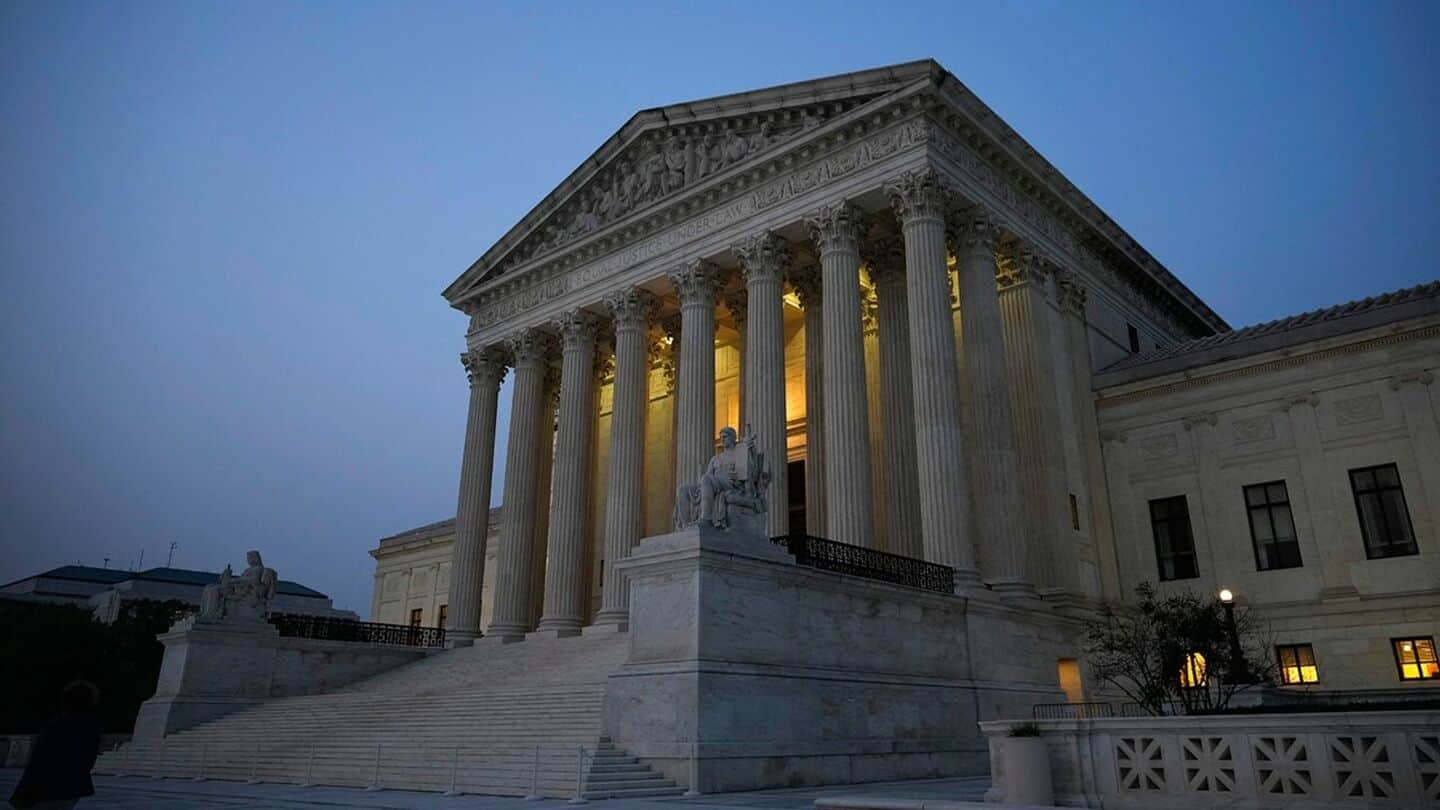No new deportations 'for now,' orders US Supreme Court
What's the story
The US Supreme Court has stayed the deportation of Venezuelan detainees in northern Texas.
The decision came after the American Civil Liberties Union (ACLU) made an emergency appeal, alleging immigration officials would soon resume removals under the Alien Enemies Act of 1798.
The court's order prohibits any removal of Venezuelans detained at Bluebonnet Detention Center until further notice from the high court.
Legal concerns
ACLU highlights potential human rights violations
According to the ACLU's emergency petition, scores of Venezuelan men detained at Immigration and Customs Enforcement's Bluebonnet detention center were given notices suggesting they were classified as Tren de Aragua gang members.
They were warned "that the removals are imminent and will happen tonight or tomorrow" under the Enemies Act.
After the court's ruling, ACLU attorney Lee Gelernt said these people were in danger of spending their lives in a brutal Salvadoran prison without due process.
Allegations
Federal judges issued similar orders
Federal judges in Colorado, New York, and southern Texas have also issued orders prohibiting the deportation of AEA detainees until the administration offers a means for them to file claims in court.
However, no such order has been issued in the Texas area that includes Bluebonnet, which is 24 miles north of Abilene in the state's far north.
Historical context
Alien Enemies Act: A historical perspective
The Alien Enemies Act has been used just three times in US history, most recently during WWII, when Japanese-American civilians were placed in internment camps under broader wartime legal actions.
The Donald Trump administration had argued it gave them the power to quickly deport immigrants identified as gang members, regardless of immigration status.
Allegations
ACLU accuses ICE of misleading detainees
ACLU's filing had declarations from three separate immigration lawyers who said their clients in Bluebonnet were given documents implying they were Tren de Aragua members and could be deported by Saturday.
One lawyer, Karene Brown, claimed her client was instructed to sign papers in English despite only speaking Spanish.
Gelernt also alleged the administration initially moved Venezuelans to its South Texas immigration facility for deportation.
He said witnesses saw the men being loaded on buses to go to the airport.
